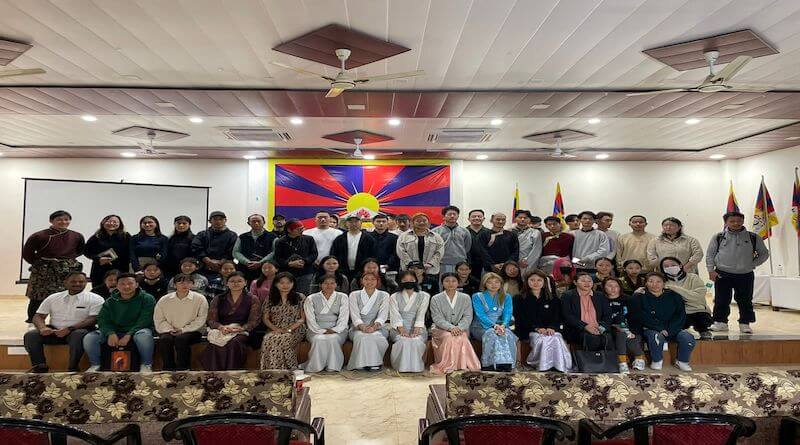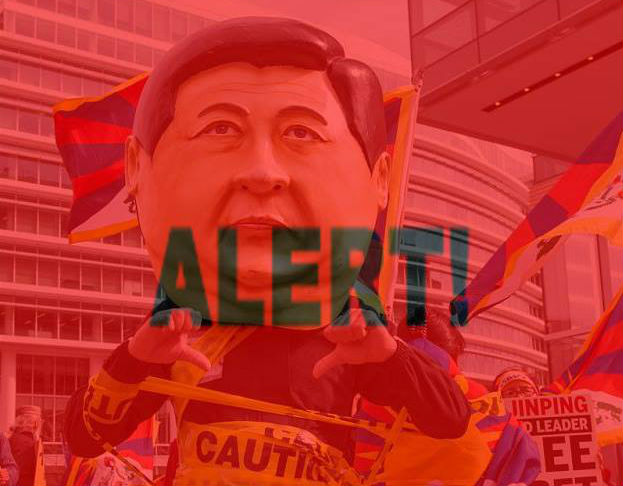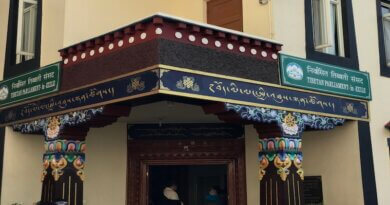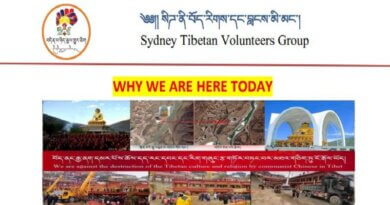Report on Tibet: Independence and Illegal Occupation
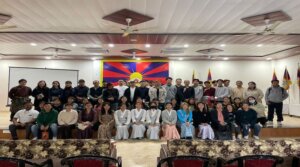
By: Tenzing Dhamdul, FNVA Research Associate
On 13th February 1913, His Holiness the 13th Dalai Lama Thupten Gyatso came out with a proclamation that reaffirmed Tibetan Independence. Therefore, declaring and ushering Tibet into the era of a modern nation-state, the first of its kind in the high Himalayas as its near neighbour which would eventually occupy it illegally was in a civil and factional power struggle after the dethronement and removal of the Qing Dynasty.
This year Tibetans worldwide, in particular, those not under the clutches of the Chinese Communist regime commemorated and celebrated the 110th anniversary of this very significant proclamation.
On this auspicious day, the Foundation for Non-violent Alternatives (FNVA), Students for a Free Tibet (SFT)- New Delhi, and Regional Tibetan Youth Congress (RTYC)- Rohini jointly organised the event ‘Tibet: Independence and Illegal Occupation’.
The event was held at the Chushi Gangdruk Hall in Majnu Ka Tilla, New Delhi and it included two programmes, a discussion session and a movie screening. Scores of Tibetans joined and participated in the event along with several Tibet supporters and observers.
The event started with the lighting of a Chomey (Butter lamp) in front of a portrait of His Holiness the 14th Dalai Lama and subsequently paid tribute to all the Tibetan martyrs and victims from the uncalled natural disaster that struck Turkey and Syria, taking away many lives.
Ugyan Choedup, a PhD candidate at the Pennsylvania State University on history and the co-founder of a popular Tibetan podcast, Khyeltam talked on the topic ‘Declaration in Reaffirming Tibetan Independence: An Historical Analysis’.
He dissected Tibet through historical precision, gave a background on this declaration and spoke on the difference between present-day China and historical China, Quing Dynasty and Manchus and the rise of nationalism in China during the early 20th century which he said “shifted the Chinese perspective to Tibet” and that China’s “claim over Tibet started to begin from then onwards.”
Tashi Dhondup, the president of the National Democratic Party of Tibet (NDPT) deliberated on the topic ‘Democracy in Exile: Call for Independence under illegal Chinese Occupation’.
He brought to light the current situation in Tibet and how our Tibetan sisters and brothers continue to suffer daily under Chinese oppression.
He further spoke about China’s bilingual education policy in Tibet that gradually led to the replacement of Tibetan with Chinese as the medium of instruction, the Desecration of Drago a report released by the Free Tibet organization and the colonial-style boarding school, all of which he said are China’s tactics to assimilate the Tibetans to the Chinese way of life.
He declared the current plight of Tibetan democracy as dirty and not up to the standard of a nation that is fighting against Communist China, Tibetan youths as the future of Tibet and Tibet’s independence as the only solution.
Tibetan writer and activist Tenzin Tsundue spoke about the ‘Tibetan Freedom Movement: Aspirations of the Tibetan People’ and gave an overview of China’s influence in the contemporary world and how Beijing uses its economic might to arm-twist subjugate smaller nations.
Speaking on the significance of the 110th anniversary of the declaration of Tibetan independence by the 13th Dalai Lama, he added that “understanding history means understanding yourself.”
He further called Beijing’s “one China narrative false” and urged “Tibetans and the people of the world to rally together to remove this Chinese-made illusion.”
During the question-answer session, Ugyan Choedup spoke about a possible third alternative beyond the current Middle Way Approach and Complete Independence binary while Tashi Dhondup declared it a high time for the Tibetans in exile to do away with petty factional politics within the community and to fight collectively against communist China, who continues to occupy Tibet illegally.
The participants then engaged informally with the speakers and the event concluded with the screening of ‘Tibet: Cry of the Snow Lion,’ a 2002 documentary film about the Chinese occupation of Tibet, the state of Chinese occupied Tibet and its history of oppression and resistance directed by Tom Peosay.
 Tenzing Dhamdul is a research associate at the Foundation for Non-violent Alternatives (FNVA). FNVA is a not-for-profit, non-partisan, public policy organisation, established to undertake the objective study and analysis of India’s security that is directly linked with developments in contemporary China and Tibet.
Tenzing Dhamdul is a research associate at the Foundation for Non-violent Alternatives (FNVA). FNVA is a not-for-profit, non-partisan, public policy organisation, established to undertake the objective study and analysis of India’s security that is directly linked with developments in contemporary China and Tibet.

